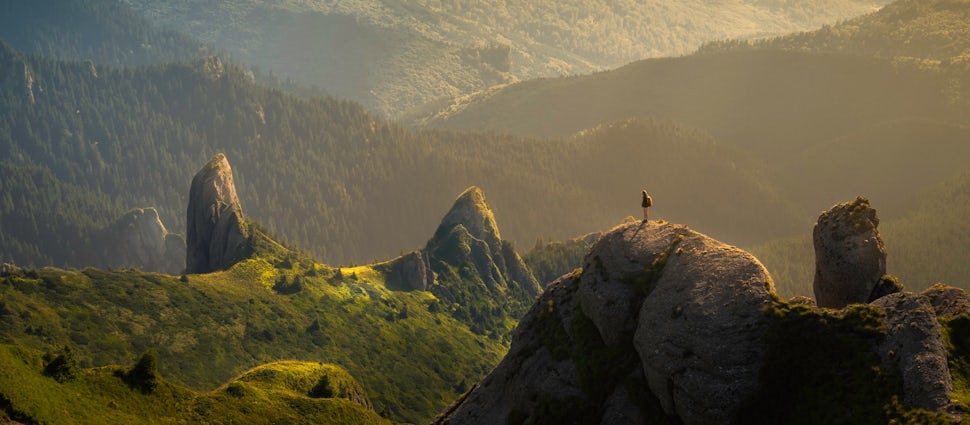Now Is Not the Time for Outdoor Adventure
Stay home today and protect the people and places you'll visit tomorrow

The only time I left the house yesterday was around 5:30 p.m. Spring has come early to Portland; the famous waterfront cherry blossoms are in full bloom, and just last week visible stars of pink began to unfold from the rhododendron near my southeast Hawthorne home. I took a walk with my sister and her two children, both too young and blissfully ignorant of the shroud of uncertainty that hangs over our city, our country, our world.
At least on the green slopes of Mount Tabor, they weren’t alone. Portland is an active city; its people have long recognized the inherent health and happiness of spending time outside. It was no surprise to see them turn out in clusters and satellites, their dogs roaming everywhere on leash, the only present creatures deemed immune to the ills of the COVID-19 pandemic.
No, it wasn’t surprising to see Portland turn out in force. Worldwide pandemic hasn’t struck American shores like this in generations. There’s simply no context for it. How is one supposed to react to an experience never experienced? No one I work with, young or old—some of whom have been around long enough to witness the Vietnam War and the outbreak of AIDS—has any experience that they can draw from to calibrate their behaviors.
Back at Mount Tabor, an extinct volcano and one of Portland’s busiest parks, it felt like it could’ve been any other spring day in my funky southeast neighborhood. A couple walked by in vintage faux fur leggings and torn jeans, holding hands. New-age dirtbags juggled yo-yos and smoked pot on a hillside. Trail runners trundled up steep Tabor slopes, dodging mountain bikers and long boarders rolling in the opposite direction. Passing conversation began with, Hey, these are crazy times, right?, before the speakers returned to their dog’s regular afternoon walk. Our news feeds and inboxes are blowing up with COVID news; meanwhile, the analog world, amid mass cancellations and closures, maintains its sanguine tenor.
My sister stopped to watch her daughter learn how to cartwheel down a hill, and without noticing I continued to walk down the trail. I didn’t know I had left them behind until I turned around and dodged a couple hot on my heels, hastily mumbling a hello to people I thought I knew. Even on my own, I wasn’t alone. While my niece caromed downhill with typical Kindergarten vigor, I glanced in the opposite direction toward Portland’s city skyline. The evening light splintered on the windswept surface of Tabor’s glistening reservoir. Above it, the fractured horizon of sky hewn with skyscrapers, the Tualatin Hills behind them, its summits fringed with Douglas fir.
Should I even be here?
We should know, by now, what the CDC recommends. Across the country, major metro areas, like San Francisco, have entirely locked down. In the outdoor industry, we’re asking ourselves whether our normal trauma response—Hey, just go outside!—is appropriate, and the feedback is wildly divergent. On the one hand, the solitude of the trail sounds like the perfect antidote to everything COVID represents. Restlessness? Quarantine? A place to improve health and fitness? An escape from the stress of an incessant news cycle? Outdoor adventure checks all the boxes with a pen inked in sunsets and cerulean.
Except that it actually doesn’t. “Disease vector” is the vocabulary of the moment, and when you unpack an outdoor adventure from door to door, there are far more opportunities than you might think for a disease that need not present itself in order to transmit from person to person.
Maybe you stop for gas.
Maybe you stock up on snacks.
Maybe you sign a trail register.
Maybe that spot you chose for its remoteness crosses the mind of a dozen other adventurers.
All of these scenarios present an opportunity for COVID to spread. Are you going to turn around at the trailhead if there are too many people? Will you pass the grocery store to protect the clerks who, in other parts of the country, are too afraid to show up for work except that they would lose their job if they don't?
Portland is famously renowned for its proximity to just about every type of landscape imaginable, including one of the world’s most remarkable ecotones, the Columbia River Gorge, which sees 2 million visitors annually and where, on a sunny day from Dog Mountain, you can scan a spectrum that spans from dense temperate forest in the Willamette Valley to the barren prairie east of the Cascades. But this isn’t the only place where natural beauty is abundant. Nor are those lands empty and unoccupied.
On the way to Central Oregon along Highway 26, a spectacular scenic route that traverses the slopes of Oregon’s highest peak, a driver passes through the Warm Springs Reservation. What would COVID look like in marginalized communities with little or no access to adequate health care services? What would it look like in California’s Owens Valley? Or any of the West’s mountain towns, where, by the way, income inequality tends to be more dramatic than anywhere else in the United States? What would COVID look like there?
I’m not one to find out. And while the sun set over another glorious spring day in Portland, amid the airborne humus kicked up by a city that remains in motion, I gathered myself and walked home.
We want to acknowledge and thank the past, present, and future generations of all Native Nations and Indigenous Peoples whose ancestral lands we travel, explore, and play on. Always practice Leave No Trace ethics on your adventures and follow local regulations. Please explore responsibly!
Do you love the outdoors?
Yep, us too. That's why we send you the best local adventures, stories, and expert advice, right to your inbox.







